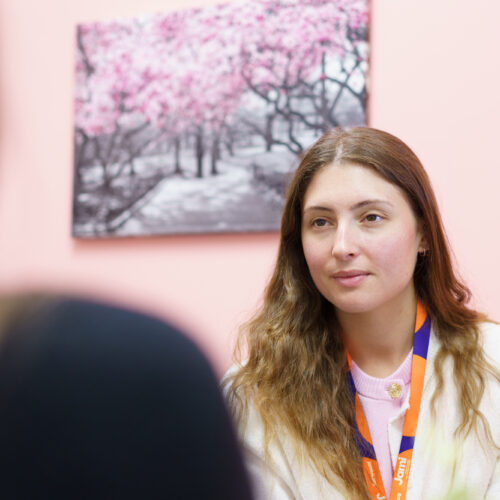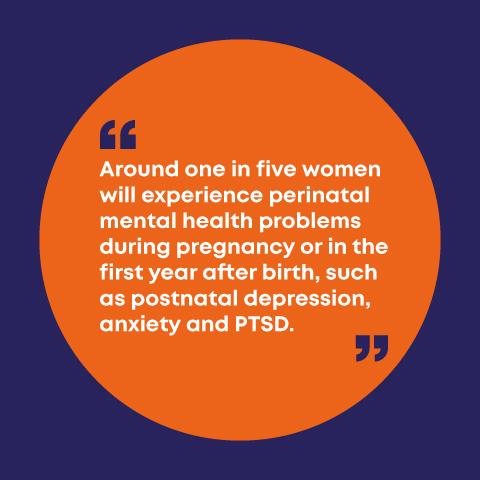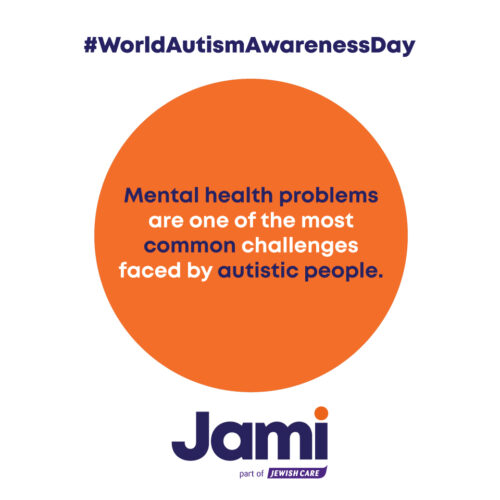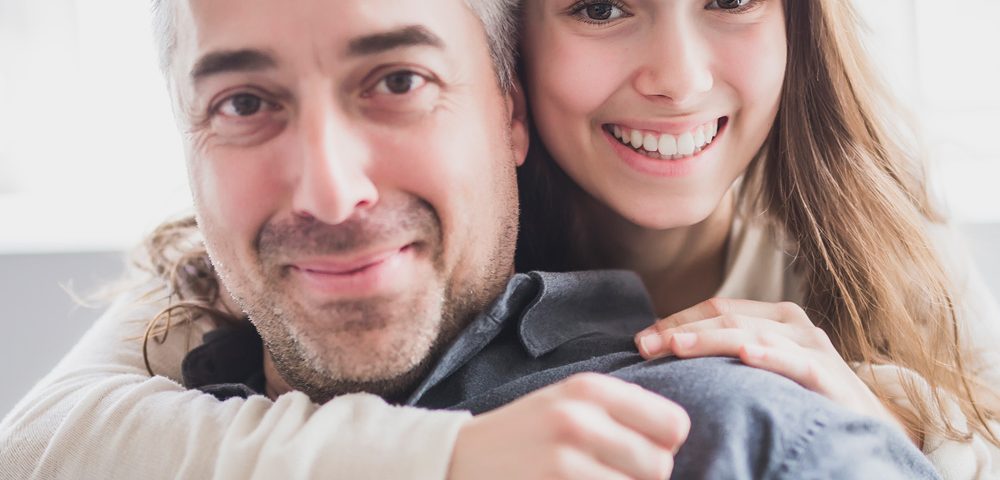
It was at Pesach that David finally admitted to himself that there was something really wrong with his daughter Sophie. As the single parent of a teen he had become used to eating alone and put it down to Sophie’s healthy social life. Sophie started to display signs of avoiding food, avoiding the truth of where she was eating that food, and lying – so she’d say ‘I ate earlier’ or ‘I’m eating at a friend’s.’ “In the early days, you don’t see all the signs. Some of them I put down to teenage mood swings – my daughter became very withdrawn and very quiet.” At the family Seder, Sophie did everything she could to avoid eating, jumping up to help in the kitchen, playing with her young cousins.
“We finally had a breakthrough conversation where I persuaded Sophie to go to the GP with me who then referred her to an eating disorder service.”
For David and Sophie, and for numerous other families receiving a mental health diagnosis, this is where statutory support often ends for the carer. At Jami, we recognise that caring for someone with a mental illness is incredibly challenging and can have a huge impact on the carers’ own mental health.
 After Sophie was diagnosed, David felt like they were left to sink or swim. It was then that David turned to Jami for help. In order to help Sophie along her path towards recovery, David realised he had to learn as much as possible about Sophie’s eating disorder, mental health and how he could support Sophie whilst also looking after himself.
After Sophie was diagnosed, David felt like they were left to sink or swim. It was then that David turned to Jami for help. In order to help Sophie along her path towards recovery, David realised he had to learn as much as possible about Sophie’s eating disorder, mental health and how he could support Sophie whilst also looking after himself.
Most often, when I first meet a carer and assess their needs I find that their own wellbeing is as low as their loved one who has the diagnosis. Carers need as much, if not more support from us. As Carer Support Coordinator at Jami, by phone and through regular meetings I am able to provide a sympathetic ear. I also signpost towards practical support such as courses available through Jami’s Head Room Education programme which offer courses about mental health and wellbeing to everyone in the community.
David attended a mental health first aid course run by Jami, which helped him gain a broader understanding of mental health that he could apply as a carer and strategies that he could use at home on those more difficult days.
To find out more about what Sophie’s options were and what responsibilities statutory services had towards her, he also attended a Jami legal seminar aimed specifically at carers and delivered by an expert lawyer. David felt this course was succinct and bridged the gap of information that local services didn’t offer.
David appreciated Jami’s extra level of understanding that our Jewish ethos and sensitivity provide, making him feel more comfortable discussing with others who understand the demands of family and community, and how this can impact on his emotional wellbeing.
Sophie’s health has been stable for the past few years and she is working towards her A levels. She’s also working with one of Jami’s Peer Support Workers who is able to use their own lived experience of mental illness to demonstrate that recovery is possible.
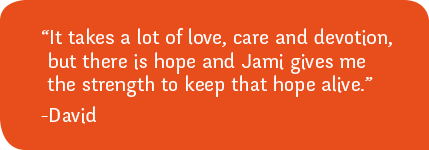 “I’m full of hope,” says David, “if I think back a few years, I was very worried that I might not see my daughter reach adulthood. It takes a lot of love, care and devotion, but there is hope and Jami gives me the strength to keep that hope alive”.
“I’m full of hope,” says David, “if I think back a few years, I was very worried that I might not see my daughter reach adulthood. It takes a lot of love, care and devotion, but there is hope and Jami gives me the strength to keep that hope alive”.
The mental health landscape continues to change – many more people feel able to talk openly about their mental health and the stigma surrounding mental illness is slowly being eroded. Yet we still have a long way to go and all the while many more people – those with mental ill health and those caring for them – are turning to Jami for support every day.
We can only meet this increasing demand for our services with your generosity. Please donate what you can to Jami this Pesach.
Your support at this time of year will make a positive difference – thank you.
